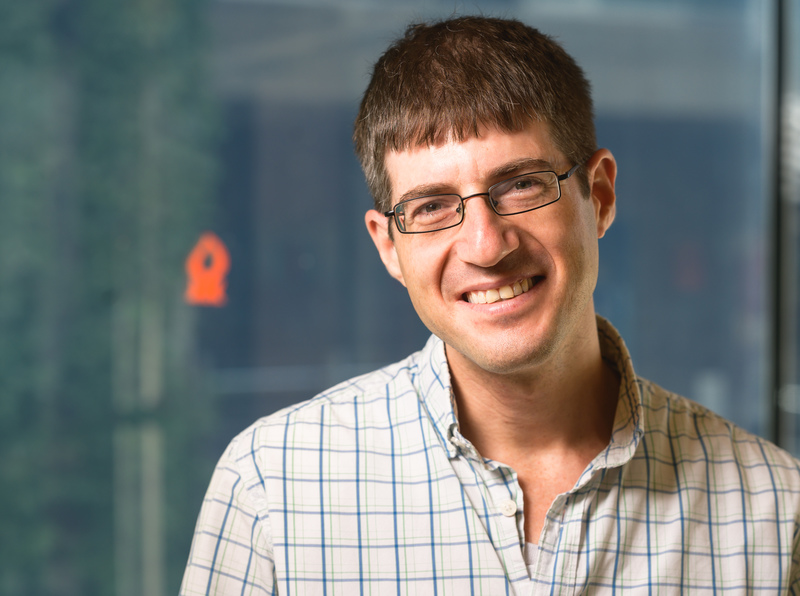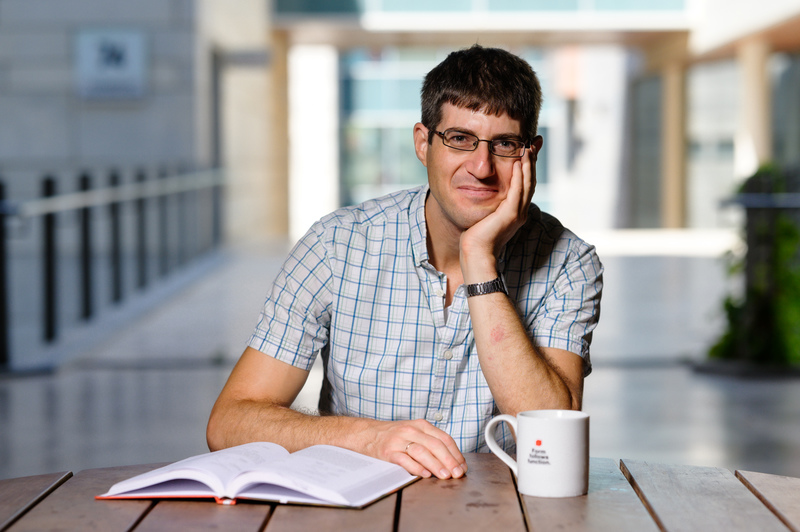Department of Hebrew Literature
Faculty of Humanities and Social Sciences

My life before BGU:
I was born in Haifa, where I also grew up and graduated from high school. To this day, Haifa is my favorite city in Israel. I studied for my undergraduate degree in the Department of Literature, Language and Arts of the Open University concurrently with my Yeshiva studies and military service. It was mostly for my own enjoyment; I wasn’t thinking then of an academic career, and I didn’t know where it would lead me, but it must have sparked something. For my master’s degree I ended up at the Department of Hebrew Literature at BGU, and within a couple of days, I fell in love with the University and the Department and continued there until the end of my PhD studies. My research at that time focused on stories in Hebrew and Aramaic, which had been preserved in Talmudic literature, as well as on literary theory. Midway through my PhD I experienced a sort of crisis with the basic assumptions of my discipline: my findings didn’t align with conventional assumptions and, most importantly, forced me to rethink my methodology. In hindsight, this crisis, like many other crises, was an opportunity for growth: it allowed me to refocus in unforeseen and exciting new directions that transformed my dissertation into something completely unexpected. I continued to develop these new directions during my postdoctoral studies at the University of Hamburg in Germany, at the Interdisciplinary Center for Narratology, where I delved into literary theory and began using computational research on literature. After three wonderful years in Hamburg – my favorite city in the world – my family and I returned to Israel, directly to BGU.
"Returning to BGU, and to the Department of Hebrew Literature specifically, was a dream come true. First, because in every sense, it is the best department in its field in Israel and around the world; Second, because what makes it so is an unconventional blend of a collegial, supportive, and very open atmosphere with a kind of healthy vitality that encourages hard work and constant striving to achieve new goals."
|
My research:
My research straddles three primary foci: Hebrew literature (particularly, Talmudic), literary theory (especially narratology), and computational literary studies, which is a key branch of Digital Humanities. As a scholar of literature, I tend to deal with literary structures and with the way these structures function and create meaning. The structure of a literary text is a fascinating object for study: its best examples almost always combine function with artistry; adherence with conventions and traditions is combined with breaking them, which makes room for new problems. I analyze these complex dynamics from a perspective that combines the humane and the computational; in other words, the reader’s sensitive attention is combined with the analytical power of the computer. In the past couple of years, I have added another focus to this ensemble: In light of the global climate crisis, I have begun working on the links between literature and the environment, and I must admit that this intellectual turn is particularly exciting.
Why BGU?
Returning to BGU, and to the Department of Hebrew Literature specifically, was a dream come true. First, because in every sense, it is the best department in its field in Israel and around the world; Second, because what makes it so is an unconventional blend of a collegial, supportive, and very open atmosphere with a kind of healthy vitality that encourages hard work and constant striving to achieve new goals. This unique spirit is exactly what I needed to establish my literary lab – a place where literature is examined from a computational perspective and where everything is accomplished through teamwork. This method may already exist in the world, but it is formulated in a unique way here, which I am very proud of.

An insight from my research:
Literary research has taught me to be conscious of unique phenomena, exceptions, and the one-off element in everything; computational research has taught me that quantity has significance as well, and that it is impossible to understand the world without attention to the broad trends clearly visible beyond the small differences. In my research today, I always try to combine the two, to move back and forth between the general and the individual. Movement, generally, is the most important aspect of research to me (and not just in research): I cannot fully describe how much my encounters with other disciplines (from art to computer science; from sustainability studies to math and even electrical engineering) have expanded my horizons. In sum: don’t stagnate; dream far; don’t settle for the familiar and known; look at the world from different angles; and seek inspiration from new pastures.
Something that doesn't appear on my CV:
I really love hiking and working in the garden. I’d like to say that I enjoy playing the saxophone, but the sad truth is that I rarely find time for it.
A source of inspiration:
That’s a tough question; There are many and they change frequently. Sometimes, it’s people I was fortunate to meet, and at other times historical figures; sometimes it’s a striking landscape or tree in the forest, and at others it’s a massive seaport in action (I’m from Haifa and Hamburg, after all); sometimes books. On the shelf next to my desk are now the books the World of Yesterday by Stefan Zweig, the Periodic Table by Primo Levi, Invisible Cities by Italo Calvino, and the Structure of Scientific Revolutions by Thomas Kuhn. I suppose none of them are there accidentally. Academically, I was greatly inspired by my postdoc host and advisor, Prof. Jan Christoph Meister, who is an exemplary researcher and human being.
When I grow up:
For many years I thought I would become an architect, and I am still excited by good architecture. Today, I hope that when I grow up, I can travel the country and the world without thinking of the next article/book/project/grant proposal that is due…
If I wasn’t a researcher, I would...
be an architect, of course; or maybe I would simply research something else (say in the natural sciences).
In Brief:
» Facebook or Twitter? Neither (except for the Lab’s professional Twitter account)
» Game of Thrones or the Simpsons? Borgen!
» Chess or backgammon? Chess
» Trekking or the spa? Trekking
» Car or train? Only the train! (and a bike)
» Fortis or Sakharov? Sakharov
» Classical Europe or India? Europe. A space I usually feel at home in
» Ocean or pool? The ocean, because of the air, the sky, and the quiet
» Radio or podcast? At home – music through Spotify; on the road – podcasts (sometimes)
» Night or Morning? Night and morning. My problem is with the midday…
» Winter or summer? Winter, obviously